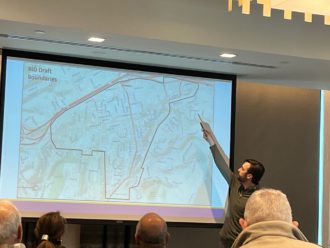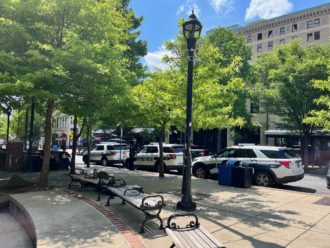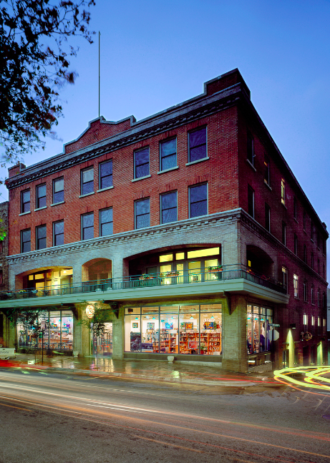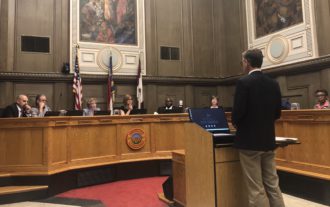Among those who are skeptical, the point of contention is whether a business improvement district overburdens downtown taxpayers for basic services that should be provided by the City of Asheville and Buncombe County.


Among those who are skeptical, the point of contention is whether a business improvement district overburdens downtown taxpayers for basic services that should be provided by the City of Asheville and Buncombe County.

Shared concerns about crime and an understaffed Asheville Police Department fostered an unusual alliance in today’s partisan times. An advocacy group called Asheville Coalition for Public Safety formed in October, bringing together community members of all political stripes who are concerned about crime, mental health, drug use and the unhoused population.

Issues of racial and economic equity dominated the debate over residential valuations, with critics arguing that Buncombe’s practices are unfair to low-income residents and communities of color. While those issues aren’t immediately apparent with commercial property, suggests ad hoc committee member Ori Baber, other deficiencies with county assessments likely do carry over from the residential side.

“If developers want to work in a historic district, let them come up with sensible plans that adhere to the same rules and regulations that property owners and renters have to live by.”

Around 100 people attended Asheville City Council’s nearly five-hour meeting on March 14, during which 27 speakers declared both resistance and support for the conversion of the Flatiron Building into a hotel.

Asheville filmmaker Erin Derham shares her journey of making the documentary “Julian Price: Envisioning Community, Investing in People.”